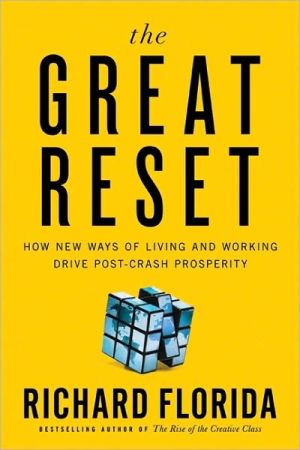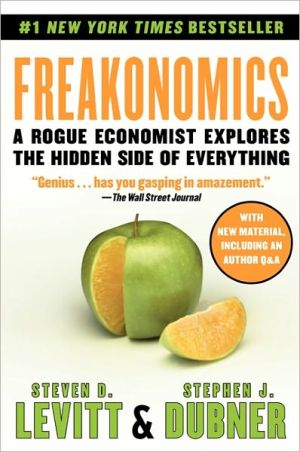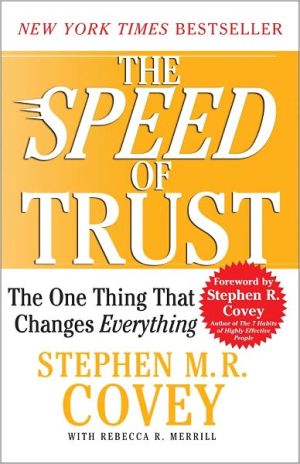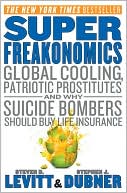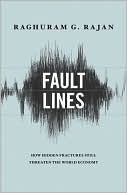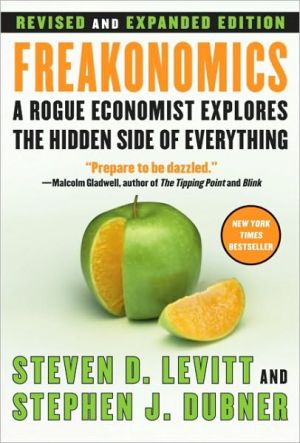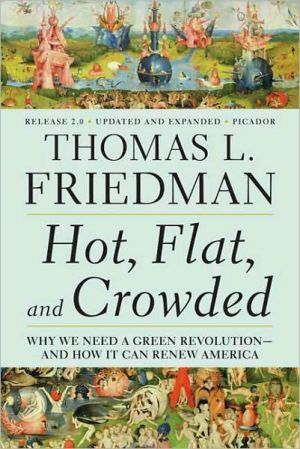The Great Reset: How New Ways of Living and Working Drive Post-Crash Prosperity
We tend to view prolonged economic downturns, such as the Great Depression of the 1930s and the Long Depression of the late nineteenth century, in terms of the crisis and pain they cause. But history teaches us that these great crises also represent opportunities to remake our economy and society and to generate whole new eras of economic growth and prosperity. In terms of innovation, invention, and energetic risk taking, these periods of "creative destruction" have been some of the most...
Search in google:
We tend to view prolonged economic downturns, such as the Great Depression of the 1930s and the Long Depression of the late nineteenth century, in terms of the crisis and pain they cause. But history teaches us that these great crises also represent opportunities to remake our economy and society and to generate whole new eras of economic growth and prosperity. In terms of innovation, invention, and energetic risk taking, these periods of "creative destruction" have been some of the most fertile in history, and the changes they put into motion can set the stage for full-scale recovery. In The Great Reset, bestselling author and economic development expert Richard Florida provides an engaging and sweeping examination of these previous economic epochs, or "resets." He distills the deep forces that have altered physical and social landscapes and eventually reshaped economies and societies. Looking toward the future, Florida identifies the patterns that will drive the next Great Reset and transform virtually every aspect of our lives—from how and where we live, to how we work, to how we invest in individuals and infrastructure, to how we shape our cities and regions. Florida shows how these forces, when combined, will spur a fresh era of growth and prosperity, define a new geography of progress, and create surprising opportunities for all of us. Among these forces will be new patterns of consumption, and new attitudes toward ownership that are less centered on houses and cars the transformation of millions of service jobs into middle class careers that engage workers as a source of innovation new forms of infrastructure that speed the movement of people, goods, and ideas a radically altered and much denser economic landscape organized around "megaregions" that will drive the development of new industries, new jobs, and a whole new way of life We've weathered tough times before. They are a necessary part of economic cycles, giving us a chance to clearly see what's working and what's not. Societies can be reborn in such crises, emerging fresh, strong, and refocused. Now is our opportunity to anticipate what that brighter future will look like and to take the steps that will get us there faster.With his trademark blend of wit, irreverence, and rigorous research and analysis, Florida presents an optimistic and counterintuitive vision of our future, calling into question long-held beliefs about the nature of economic progress and forcing us to reassess our very way of life. He argues convincingly that it's time to turn our efforts—as individuals, as governments, and as a society—to putting the necessary pieces in place for a vibrant, prosperous future. The Barnes & Noble Review The fact is, however, that Florida has been preaching this vision for years now -- since long before the financial crisis. If Florida's Great Reset does happen -- and I hope that it does -- then its roots will lie in the revivification of downtown areas in the 1990s, as well as in the way in which the internet revolution has turned our lives from being fundamentally bipolar (work and family) to being extremely multipolar, with many of the most successful individuals being those who manage to connect dozens or even hundreds of disparate ideas, individuals, and businesses. The crisis of 2008, while it surely looked gruesome when the book was being pitched, now seems to be neither so devastating nor so important that it will ever be considered an important contributor to our future lifestyle.
Chapter One\ The Great Reset\ \ \ I can’t help wondering what my parents would be thinking right now. Born in the 1920s, my mother and father lived through many of the greatest upheavals of the twentieth century, from the Great Depression of the 1930s to the roaring recovery of the decades that followed the Second World War. Both grew up in Newark, New Jersey’s Italian district, my father’s home absent a refrigerator or indoor plumbing. They recounted stories of the bread lines and tent cities and government-issued clothing that marked the urban misery of the Depression years. My dad left school at age thirteen and took up work in an eyeglasses factory, combining his wages with those of his father, mother, and six siblings to make a family wage. At Christmas, his parents, unable to afford new toys, wrapped the same toy steam shovel, year after year, and placed it for him under the tree. But thirty years later, they were able to follow countless contemporaries to the greener pastures of the suburbs, buying first a house all their own, then a shiny new Chevy Impala, a washing machine, and a television, and raising their children in relative security. My father saw his low-wage job—in the very same factory—turn into good, high-paying work that could support our entire family.\ \ The economic peaks and valleys that my parents experienced are part of the life cycle of any society. They can be difficult, sometimes horribly painful, but just as trees shed their leaves in the fall to make room for the new growth of spring, economies reset themselves. Times of crisis reveal what is and isn’t working. These are the times when obsolete and dysfunctional systems and practices collapse or fall by the wayside. They are the times when the seeds of innovation and invention, of creativity and entrepreneurship, burst into full flower, enabling recovery by remaking both the economy and society. Major periods of economic transformation, such as the Great Depression or the Long Depression of the 1870s before it, unfold over long stretches of time, like motion pictures rather than snapshots. Likewise, the path to recovery can be long and twisted—the better part of three decades in the case of those two previous crises. Seen in the greater context of history, economic crises inevitably give rise to critical periods in which an economy is remade in ways that allow it to recover and begin growing again. These are periods I call Great Resets.\ \ \ Sitting at his perch in the British Museum, Karl Marx wrote trenchantly about the violent shift from an older agricultural economy to a modern capitalist one. Capitalism, the most innovative, revolutionary economic system of all time, was also prone to financial panics and economic crises. Despite the massive deprivation and human suffering they caused, these crises played a fundamental role in propelling the economy forward. They were critical moments when existing economic and social arrangements were remade, enabling new periods of economic growth. Born in the same year that Marx died, the great theorist of innovation and entrepreneurship, Joseph Schumpeter, used the phrase “creative destruction” to describe how economic crises sweep away old firms and outmoded economic systems and practices, clearing the way for entrepreneurs to introduce new technologies and even entirely new industries and setting into motion a new era of growth. John Maynard Keynes saw in these crises the need for government spending to essentially protect capitalism from itself. With the private sector flat on its back, government spending was the only way to keep capitalism going and get the economy back on its feet. Each of these important thinkers described the part of the process by which busts slowly turn around and lead to booms, but real, lasting recovery requires more than bursts of technological innovation and new roles for government.\ \ President Barack Obama’s chief of staff, Rahm Emanuel, likes to quote Paul Romer’s now-famous maxim about “a crisis being a terrible thing to waste.” The fact of the matter is that we’re wasting it, big time. The whole approach of throwing trillions of public dollars at the old economy is shortsighted, aimed at restoring our collective comfort level. Meaningful recovery will require a lot more than government bailouts, stimuli, and other patchwork measures designed to resuscitate the old system or to create illusory, short-term upticks in the stock market, housing market, or car sales. Government spending can’t be the solution in the long run. Though government can fill in gaps for a while, it simply lacks the resources to generate the enormous level of demand needed to power sustained growth.\ \ “This economic crisis doesn’t represent a cycle. It represents a reset. It’s an emotional, raw social, economic reset,” said General Electric CEO Jeffrey Immelt. “People who understand that will prosper. Those who don’t will be left behind.” Webster’s New Collegiate Dictionary defines “reset” as “to set again or anew.” The Oxford English Dictionary defines it as “to set again or differently.”\ \ Great Resets are broad and fundamental transformations of the economic and social order and involve much more than strictly economic or financial events. A true Reset transforms not simply the way we innovate and produce but also ushers in a whole new economic landscape. As it takes shape around new infrastructure and systems of transportation, it gives rise to new housing patterns, realigning where and how we live and work. Eventually, it ushers in a whole new way of life—defined by new wants and needs and new models of consumption that spur the economy, enabling industry to expand and productivity to improve, while creating new and better jobs for workers.\ \ Economic systems do not exist in the abstract; they are embedded within the geographic fabric of the society—the way land is used, the locations of homes and businesses, the infrastructure that ties people, places, and commerce together. These factors combine to shape production, consumption, and innovation, and as they change, so do the basic engines of the economy. A reconfiguration of this economic landscape is the real distinguishing characteristic of a Great Reset. After the Great Depression, suburbs expanded, creating new demand for automobiles, appliances, televisions, and other goods, allowing the golden age of mass production to come into full flower. The resolution to the economic crisis of the late nineteenth century involved the rise not only of new industries and technologies but of massive industrial cities.\ \ Geographers call it the spatial fix of a problem. By what they destroy and what they leave standing, by the responses or new activity they catalyze, and by the space they clear for new growth, such big economic shocks ultimately leave the landscape transformed. Technological innovation leads to new forms of infrastructure, which lead to revolutions in where and how we live and work. Whether it’s pipes and cables or trains and bridges, the new systems expand the reach of energy and the efficiency of communication and transportation, accelerating the flow of goods, people, and ideas. A powerful movement of people ensues as cities, as well as nations, rise and decline, as major population centers massively expand, and as the economic landscape is developed ever more intensively. Every major economic era gives rise to a new, distinctive geography of its own. This Great Reset will likewise take shape around a new economic landscape and a whole new way of life that is in line with the emerging economic and social realities of our time.\ \ \ We’re still very early on in the current economic Reset, so it’s difficult to fully grasp how it will ultimately play out. But we can all sense that our way of life is changing and our economic landscape is too. These changes are emerging—and have been emerging—organically, in fits and starts, for some time now. They don’t result from top-down policy or programs, though government can encourage or discourage them by what it does or does not do. One thing is certain: this emerging new way of life, which some already refer to as an impending “new normal,” will be less oriented around cars, houses, and suburbs. We’ll be spending relatively less on the things that defined the old way of life. We’ll have to, if we expect to have money left over to sustain the new industries that will emerge in the Great Reset and usher in an age of renewed prosperity. During the Great Depression of the 1930s, as we will see, the amount of money families spent on food fell dramatically, as did the percentage of Americans working in agriculture to directly produce that food. The same kind of transformation has to happen today. Before we can nurture the new industries of the future, develop new forms of health care and biotechnologies, or even explore new forms of education or more experiential forms of entertainment and recreation, we first have to free up capital by producing the goods of the old industrial order more cheaply and efficiently.\ \ We’ve reached the limits of what George W. Bush used to call the “ownership society.” Owning your own home made sense when people could hope to hold a job for most or all of their lives. But in an economy that revolves around mobility and flexibility, a house that can’t be sold becomes an economic trap, preventing people from moving freely to economic opportunity. Not only has that piece of the American Dream grown dark, but it’s also clear that financial excess in the housing sector was one of the central causes of the economic crisis. Housing sucked up far too much of the nation’s and the world’s capital, and too many people—already overextended by the purchase of outsized houses—used those homes like virtual ATMs to finance carefree consumption. Every Great Reset has seen our system of housing change, and this one is no different. The rate of home ownership has been on the decline for some time now. Many of those who still choose to buy homes will choose smaller ones, while many more will opt for rental housing.\ \ Our new way of life is likely to depend a whole lot less on the car. In October 2009, the New York Times reported, “The recession and a growing awareness of the environment are causing many people to reassess their automobile ownership. After more than a century in which an automobile represented the American dream, car enthusiasm may no longer be a part of Americans’ DNA.” Car culture no longer exerts the powerful pull it once did. More and more families are deciding to share cars, and young people are putting off buying them and using public transit, bikes, their feet, or Zipcars or other auto-share services instead. It’s not just that oil and gas have become expensive, it’s that traffic and gridlock have become a deadweight time cost on us and our economy.\ \ One constant in the history of capitalism is the ever-more-intensive use of land, as mercantile towns replaced agricultural villages, major industrial cities replaced those towns, and massive complexes of suburbs, exurbs, and edge cites expanded the boundaries of those cities. The change we are living through is much more than a movement from suburbs to denser urban communities. What we are seeing is the rise of a new, bigger, and denser economic landscape than ever before—the rise of vast megaregions such as the corridors stretching from Boston to New York and Washington, D.C., around greater London, and from Shanghai to Beijing.\ \ These trends are in their infancy but will imprint themselves ever more forcibly on future generations. We need to understand them so that we can best adjust to them in ways that nurture broadly shared prosperity. My goal in this book is to provide a deeper understanding of the forces that are reshaping our economy and society and to provide a framework that can better direct our effort to guide or accelerate them, while ameliorating their most onerous dislocations and human costs. Resets are complex, organic processes—progress in one area of life triggers changes in another and so on down the line. Looking backward, I aim to unpack and distill the main factors and forces that have emerged during past crises and have shaped previous Resets, ultimately driving whole new eras of growth and prosperity. Looking ahead, I seek to identify the already emerging tendencies in our economy and society that can come together as core elements of yet another Great Reset—new consumption patterns that are less centered around houses and cars, new forms of infrastructure that once again speed the movement of people, goods, and ideas, and a radically altered and much denser economic landscape that will provide the springboard for a whole new way of life and drive the development of new industries and jobs. We need to anticipate and understand the trends that are already under way so that we can develop strategies that will speed their onset, shrink the time it takes to move from crisis to enduring recovery, deal most effectively with the dislocation and pain they bring about, and ultimately create a broad new era of prosperity.\ From the Hardcover edition.
Preface Part I: Past as Prologue1. The Great Reset 2. The Crisis Most Like Our Own 3. Urbanism as Innovation 4. The Most Technologically Progressive Decade 5. Suburban Solution 6. The Fix Is In 7. Unraveling Part II: Redrawing the Economic Map8. Capital of Capital9. Who’s Next?10. Fire Starter 11. Big Government Boomtowns 12. Death and Life of Great Industrial Cities 13. Northern Light 14. Sun Sets on the Sunbelt Part III: A New Way of Life15. The Reset Economy 16. Good Job Machine 17. The New Normal 18. The Great Resettle 19. Big, Fast, and Green 2 0. The Velocity of You 2 1. Faster Than a Speeding Bullet 2 2. Renting the Dream 2 3. Resetting Point Acknowledgments References IndexFrom the Hardcover edition.
\ Publishers WeeklyIn this optimistic but too-broad look at the present economic crisis and the opportunities it presents, social and business commentator Florida (The Rise of the Creative Class) examines the latest of the "Great Resets," moments of transformative upheaval (like the Great Depression) "when new technologies and technological systems arise, when the economy is recast and society remade, and when the places where we live and work change to suit new needs." Though he cautions that "not all Resets are the same," and presents enough real-life examples, Florida too often rushes back to neat generalities and cheerleading: "we must do all we can to turn service jobs into more innovative, more engaging, more fulfilling and much better-paid work." Florida also has a tendency toward gratuitous personal stories. Though the book would have benefited from fewer platitudes and authorial intrusions, the problem that looms largest for Florida-and other post-crash survival guide authors-is that the national economic calamity hasn't fully played itself out, meaning that the ability of any observer to describe the specifics of its turnaround are necessarily limited. \ Copyright © Reed Business Information, a division of Reed Elsevier Inc. All rights reserved.\ \ \ \ \ Miami Herald"The Great Reset is an interesting, provocative and intelligent book. Florida is a witty and entertaining writer…It’s well worth reading as a starting point for the future that’s coming our way whether we’re ready or not."\ \ \ BizEd Magazine"A thoughtful, generally hopeful assessment of where we are now, how we got here—and how we can rebuild in the future."\ \ \ \ \ Chris Anderson"The Great Reset shows how new technology and the new geographies of living and working come together to drive recovery….must reading for anyone who wants to understand where we are now and where we are headed."\ \ \ \ \ Jeffrey D. Sachs"This timely and thought-provoking book gives us important insights into the reshaping of America’s economic and physical landscape."\ \ \ \ \ The Daily Beast"A breath of fresh air for anyone hoping that Americans (and economists) will learn from their past mistakes."\ \ \ \ \ BizEd magazine“A thoughtful, generally hopeful assessment of where we are now, how we got here—and how we can rebuild in the future.”\ \ \ \ \ New York Post"Enticingly contrarian"\ \ \ \ \ Harvard Business Review"In his usual lucid and compelling way, Florida argues that elected officials ‘need to get over their love affair with big renewal projects’ and steer money toward neighborhood ventures that improve people’s lives."\ \ \ \ \ Falls Church News-Press"Richard Florida can be counted among the great prophets of our age. This incredibly interesting and well-written commentator on the socio-economics of the modern era has hit yet another grand slam, eclipsing his phenomenal ‘Rise of the Creative Class.’"\ \ \ \ \ The Conference Board Review[U]seful in inspiring thinking about the future of communities, of different types of jobs, and of the nature of work itself."\ \ \ \ \ Harvard Business Review“In his usual lucid and compelling way, Florida argues that elected officials ‘need to get over their love affair with big renewal projects’ and steer money toward neighborhood ventures that improve people’s lives.”\ \ \ \ \ New York Post“Enticingly contrarian”\ \ \ \ \ Falls Church News-Press“Richard Florida can be counted among the great prophets of our age. This incredibly interesting and well-written commentator on the socio-economics of the modern era has hit yet another grand slam, eclipsing his phenomenal ‘Rise of the Creative Class.’”\ \ \ \ \ The Daily Beast“A breath of fresh air for anyone hoping that Americans (and economists) will learn from their past mistakes.”\ \ \ \ \ The Conference Board Review[U]seful in inspiring thinking about the future of communities, of different types of jobs, and of the nature of work itself.”\ \ \ \ \ The Barnes & Noble ReviewAs a financial blogger, I've spent the past couple of years following the global financial crisis as it has evolved from hour to hour and from day to day. Recently, a number of "crisis books" have come out, and some of them try to place recent events into a broader context -- going back to the 1980s or even the 1960s to explain where we are today.\ University of Toronto urbanist Richard Florida has a broader perspective still. In his latest book, The Great Reset, he starts by looking at what he calls "the crisis most like our own": the Long Depression of 1873. Out of that painful era, he says, came many of the technologies which would help define the 20th Century. The electricity grid, the telephone, mass-produced steel, large-scale public education, urban sewer and public transportation systems -- they all arrived in that first great wave of urbanization.\ It's no coincidence, says Florida, that a great wave of invention followed that major economic crisis. In fact, he sees a pattern, with something similar following the Great Depression: large-scale economic deprivation has a tendency to result in both a physical and a conceptual "reset," in which the failed ways of the old order crumble, die, and are replaced by something radically new. And a large part of that reset is the "spatial fix" -- urbanization at the beginning of the 20th century, and what you might call suburbanization in the middle, as America became dominated by roads and automobiles.\ The conceit of this book is that the crisis of 2008 will act much like previous crises in 1873 and 1933, and mark the point at which the old way of doing things died and a new social order began to rise from the ashes.\ The picture that Florida paints of where he thinks we're headed, as a country, will be familiar to students of his work. It's based around cities, and especially "megaregions" -- areas like the Boston-Washington corridor which can encompass many cities and which collectively account for the vast majority of the world's economic activity, even as they house fewer than one in five of the world's population.\ Florida's vision for how we're going to rebuild our economy in the decades to come is a reasonably attractive one, although of course there are winners and losers. It's full of creative professionals in vibrant downtown live/work communities, swapping out a life of long commutes from boring exurbs for something much less carbon-intensive and much more interconnected. It's a vision where good union jobs in manufacturing industry become vanishingly rare, replaced by service-industry jobs which are only now, slowly, beginning to get the respect they deserve.\ The fact is, however, that Florida has been preaching this vision for years now -- since long before the financial crisis. If Florida's Great Reset does happen -- and I hope that it does -- then its roots will lie in the revivification of downtown areas in the 1990s, as well as in the way in which the internet revolution has turned our lives from being fundamentally bipolar (work and family) to being extremely multipolar, with many of the most successful individuals being those who manage to connect dozens or even hundreds of disparate ideas, individuals, and businesses. The crisis of 2008, while it surely looked gruesome when the book was being pitched, now seems to be neither so devastating nor so important that it will ever be considered an important contributor to our future lifestyle.\ But what of even bigger drivers of how we're going to live in the decades to come -- not only in the U.S., but around the world? With all the high-speed trains and creative-class economies that Richard Florida could ever want, will we still be at the mercy of global warming and peak oil?\ That's the subject of Matt Ridley's new book, The Rational Optimist: How Prosperity Evolves. History from 1873 to the present day is nothing to him: Ridley starts his book half a million years ago, and doesn't even get to the year 1200 until page 191. (Admittedly, he does take a few detours into the present along the way.)\ Ridley does an impressively comprehensive job of looking at the entirety of human history through the lens of a single big idea: that of the awesome power of trade and David Ricardo's principle of comparative advantage. Ridley's history is not one of empires and Great Men; it's one of trade in ideas and goods, and of resource management, and of the way in which humans, left to their own devices in contact with other humans, have a tendency to grow and prosper unless quashed by outside forces or rentiers.\ Ridley sometimes gets a little bit too caught up in his own optimism: he claims to be quite sure that the 21st century will be a wonderful time to live, while conceding that human progress comes in fits and starts, and has often gone backwards for much longer than that. He barely mentions the horrors of the Second World War, or the fact that the invention of nuclear weapons means that the human race is now more than capable of annihilating itself many times over, and his faith in markets is so strong that he uncritically rabbits the old canard about how selling anti-malarial bed nets is better at reducing malaria in Africa than giving them away. (It isn't.)\ When it comes to peak oil and global warming, Ridley makes as strong a case as I've seen that the lesson of history is that we'll be able to cope with them and thrive while doing so. Humans have been driving "renewable" resources -- especially large mammals -- into extinction for millennia, yet so far haven't run out of a single non-renewable commodity. And global warming is likely to increase the world's agricultural output, says Ridley, while remaining well within the limits of human adaptability -- at least for the next century. He doesn't deny that the challenge of this adaptation raises real issues: he's just, well, rationally optimistic that the issues will prove to be surmountable. Which doesn't stop him, late in the book, from proposing a new carbon tax to replace payroll taxes.\ Ridley's book is a useful corrective to prevailing pessimism, and should certainly be read by anybody of an apocalyptic bent, or anybody who is convinced that renewable fuels and organic food are obviously better for the environment and for humanity than the alternative. Still, Ridley is himself an interesting example of what can happen when someone is too optimistic: he was chairman of UK bank Northern Rock, which, when it failed in 2007, became the first bank in the country to suffer a bank run since the 19th century, and had to be taken over by the government. Sometimes, a bit of precautionary pessimism can be decidedly useful.\ --Felix Salmon\ \ \
